Top Ten Writers of Psychological Suspense
A tale that is more interested in the “why” rather than the sheer mechanics of “how”—and that is more attuned to what makes a soul damaged potentially beyond repair—falls under the large umbrella of psychological suspense. Crime can be at the forefront, but the chase for the criminal is often hamstrung by mental intricacies of the case, its perpetrator, and, often most prominently, its would-be solver. A murder is usually the inciting event, the big rock that hits the water, but in psychological suspense, when it’s done right, the focus is on the ripples that rock makes. Psychological suspense is a genre within crime fiction that can, and does, encompass myriad subgenres, making it difficult to classify definitively. Still, one thing is for sure: if the mental states of the characters contribute to the story—the more unstable the better—and the plot revolves around this delicate balance, chances are you’re reading psychological suspense. And you’re reading with the lights on. Here are ten examples of the best writers of psychological suspense, arranged alphabetically to avoid any hint of favoritism.
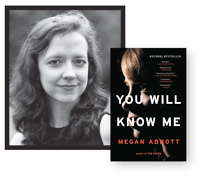 Megan Abbott
Megan Abbott
Abbott began her career writing gritty noir that was arguably darker than that of the masters (Dashiell Hammett, Raymond Chandler, James M. Cain) she so admired before shifting to contemporary suspense with 2011’s The End of Everything. Her work exemplifies psychological suspense’s focus on complex character motivations that muddy the waters of what could be, but never is, a clear-cut crime story. From cheerleaders and murder in Dare Me (2012) to a strange sickness sweeping through a high school in The Fever (2014) and the cutthroat world of competitive gymnastics in You Will Know Me (2016), Abbott’s novels prove that the intricate desires and motivations of her characters are as rich a territory as the crimes she constructs for them.
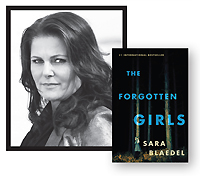 Sara Blaedel
Sara Blaedel
One of Denmark’s best-selling crime writers and the author of the popular Detective Inspector Louise Rick series, Blaedel may not seem like an obvious choice for this list. Yet her books, while adhering to certain conventions of the procedural, not only concentrate on the mental strife the cases bring to bear on her Copenhagen detective but also feature deeply compelling plots that go beyond missing children (Rick works on Denmark’s equivalent of the Missing Persons Squad).
In The Forgotten Girls (2015), Rick is drawn into a case involving a woman whose own psychological history is as relevant to the case as Rick’s own, putting both women in an unpleasant bind. Blaedel never shies away from telling a story, however disturbing, with contemporary social relevance, something that both strengthens the convictions of her heroine and weighs her down.
Photo by Steen Brogaard
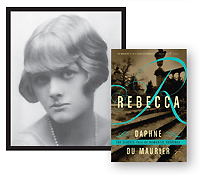 Daphne du Maurier
Daphne du Maurier
(1907–89) In du Maurier’s Rebecca (1938), a young woman falls for a suave, older gentleman while on holiday and, after a whirlwind romance, marries him and moves to his estate on the Cornish coast. To say she’s not welcomed by the staff is an understatement. Du Maurier never gives her heroine a name—she’s simply the second Mrs. de Winter, very much a rung below the dearly departed first, adored by the housekeeper Mrs. Danvers and less than adored by Mr. de Winter. It takes a while for the crime—if there is one—to be revealed, but it hardly matters; du Maurier whips up all the suspense necessary in the tangled relationships at Manderley without needing to spill a drop of blood. She’s equally adept in Jamaica Inn (1936), her debut novel, and the short story “Don’t Look Now” (1971), both masterpieces of understated psychological dread. 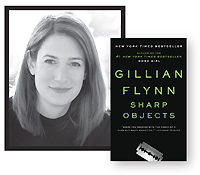 Gillian Flynn
Gillian Flynn
Flynn’s work up to and including her 2012 best-selling breakout, Gone Girl, helped propel psychological suspense to the prominence it enjoys today. Sharp Objects, Flynn’s 2006 debut, made it clear that thorny characters—inside and out—were her specialty. Sure, there’s a murder—perhaps more than one—but it’s journalist Camille Preaker who is the real draw, with her bloody backstory, history of self-harm, and resigned determination to uncover a truth most would leave buried. Libby Day from Dark Places (2009) is the perfect Flynn heroine: psychologically complex bordering on damaged, with a stubborn streak a mile long.
Photo by Heidi Jo Brady
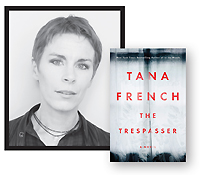 Tana French
Tana French
An unconventional series based around the Dublin Murder Squad, French’s novels, from 2007’s In the Woods to 2016’s The Trespasser, appear at first glance police procedurals but upon closer examination are deeply nuanced character studies. There is no one central protagonist but rather the amorphous squad itself that is carried through each successive installment, with a supporting detective in one novel taking center stage in the next episode. The crimes are never far from the surface and always grim—Irish crime fiction has a knack for bleakness—but it’s French’s cops, up against seemingly impossible choices, both morally and professionally, that drive each successively satisfying plot.
Photo by Kathrin Baumbach
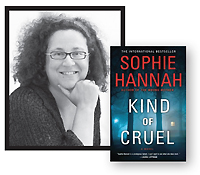 Sophie Hannah
Sophie Hannah
There’s always something not quite right in Hannah’s novels and a woman at the center who can’t quite pinpoint what it is. Her two leads, Detectives Charlotte “Charlie” Zailer and Simon Waterhouse, often play second fiddle to the perplexing event at the heart of Hannah’s stories. In Little Face (first released in 2006 by Soho Press and reissued as a Penguin paperback in 2008), Alice Fancourt returns home after leaving her baby with her husband for the first time and discovers the child has been swapped, but no one believes her. In Kind of Cruel (2013), insomniac Amber Hewerdine is arrested for the brutal murder of a woman she’s never met. Like that rock thrown into the pond, all the ripples in a Hannah novel, however small, are connected. And they’re all equally unnerving.
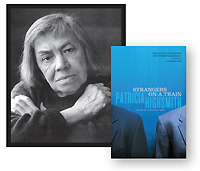 Patricia Highsmith
Patricia Highsmith
(1921–95) Unsettling psychological portraits interspersed with love and death were Highsmith’s calling card, from The Price of Salt (1952), and the five novels featuring the dangerously handsome Tom Ripley, to the ultimate you-kill-mine-I’ll-kill-yours murder swapping tale, Strangers on a Train (1950). Highsmith’s characters were always as complicated, if not more so, than the plots they inhabited, perhaps none more so than the debonair Mr. Ripley, who when he wanted something or someone, he simply killed for it. Married life doesn’t always suit Highsmith’s characters (see 1954’s The Blunderer), but it’s the way that these characters decide to deal creatively with their marital responsibilities that fascinates. Photo by Marion Ettlinger 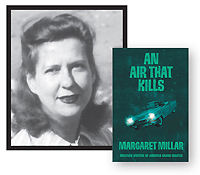 Margaret Millar
Margaret Millar
(1915–94) Despite Millar’s popularity in the 1950s, her work unfortunately fell out of print before being resurrected recently, most notably in Soho Syndicate’s 2016 Collected Millar: The Master at Her Zenith, which includes the novels Vanish in an Instant (1952), Beast in View (1955), An Air That Kills (1957), and The Listening Walls (1959). Known for pioneering work that highlights the grey areas in a time when things were supposed to be starkly black and white, Millar delved into the psychology of women, the divisions of class, and the dark abyss of loneliness. Her characters are often social misfits, with sharp edges when they should be soft, and soft when they’re expected to be tough. Millar’s focus on her characters’ interiority gives readers an insight that, while enlightening, can be an all-too-familiar kind of dismal. 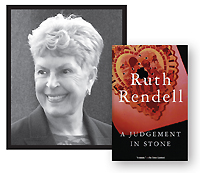 Ruth Rendell
Ruth Rendell
(1930–2015) One of the founding voices in British psychological suspense, beginning with To Fear a Painted Devil (1965), Rendell published steadily for more than four decades, both under her own name and under the pseudonym Barbara Vine. In addition to her more traditional series featuring Chief Inspector Wexford, Rendell wrote of morally ambiguous characters, such as those in A Judgment in Stone (1977), who were mired in obsession, beset by jealousy, and often apparently incapable of not committing crimes. As Vine, she often explored the dirty secrets families keep hidden, as in The Dark-Adapted Eye (1986). Photo by Tim Duncan 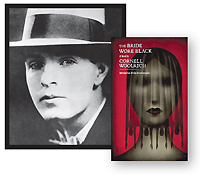 Cornell Woolrich
Cornell Woolrich
(1903–68) Most active during the 1940s, the reclusive Woolrich (who also wrote as William Irish and George Hopley) penned subtle tales of psychological horror and unease in which the victims didn’t always escape in the end. Though he’s fallen mostly out of print, Woolrich is best known for his 1942 short story “It Had To Be Murder” (the basis for Alfred Hitchcock’s Rear Window) and his “black novels,” which included The Bride Wore Black (1940), The Black Angel (1943), and Rendezvous in Black (1948). RELATED
ALREADY A SUBSCRIBER? LOG IN
We are currently offering this content for free. Sign up now to activate your personal profile, where you can save articles for future viewing









Add Comment :-
Comment Policy:
Comment should not be empty !!!
Lori J Latimer
Thank you for this list of Psychological Suspense, I am adding them to my "to-read" list. I will toss in another title for those who love the genre: "The Spider and the Fly: A Reporter, a Serial Killer, and the Meaning of Murder" by Claudia RowePosted : Jan 02, 2018 10:13
Annie Romero
Like I don't have enough books to read already now there are some new ones I need to seek out and add to my pile!! It's not really a complaint! I am reading The Killing Flower right now, a psychological war novel based in Iraq after 9/11. It's gripping to say the least! By WK Dwyer, a very good read!Posted : Apr 28, 2017 03:35
William Grabowski
Excellent piece! It's fascinating to trace the evolution of psychological suspense, and its inescapable (pun there) relationship with history, science, etc. As you know, sometimes more can be learned about a culture from its fictive output than from real-world archives. Thanks, Jordan.Posted : Apr 18, 2017 09:41